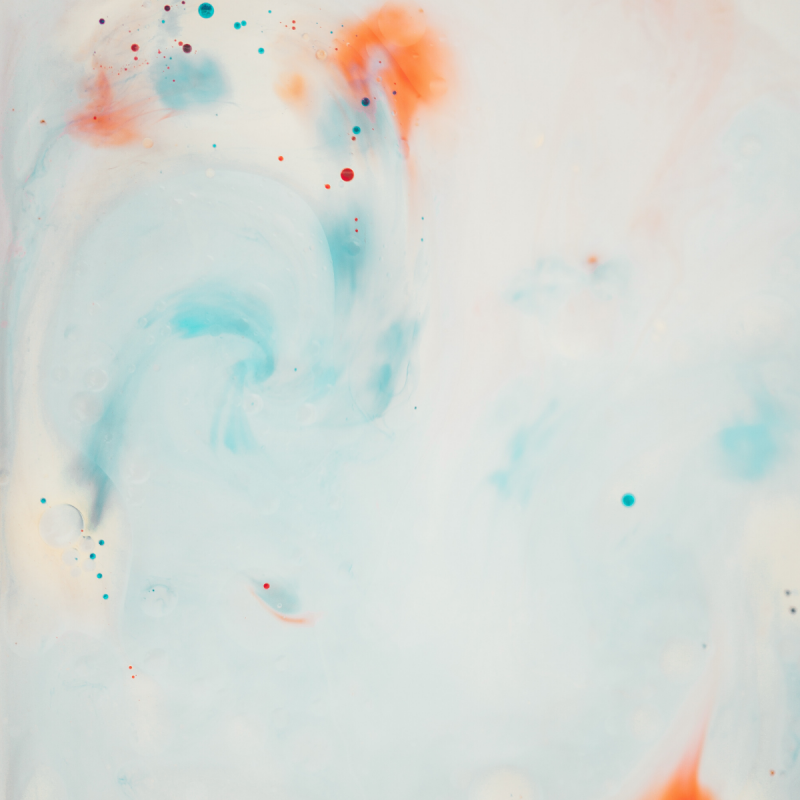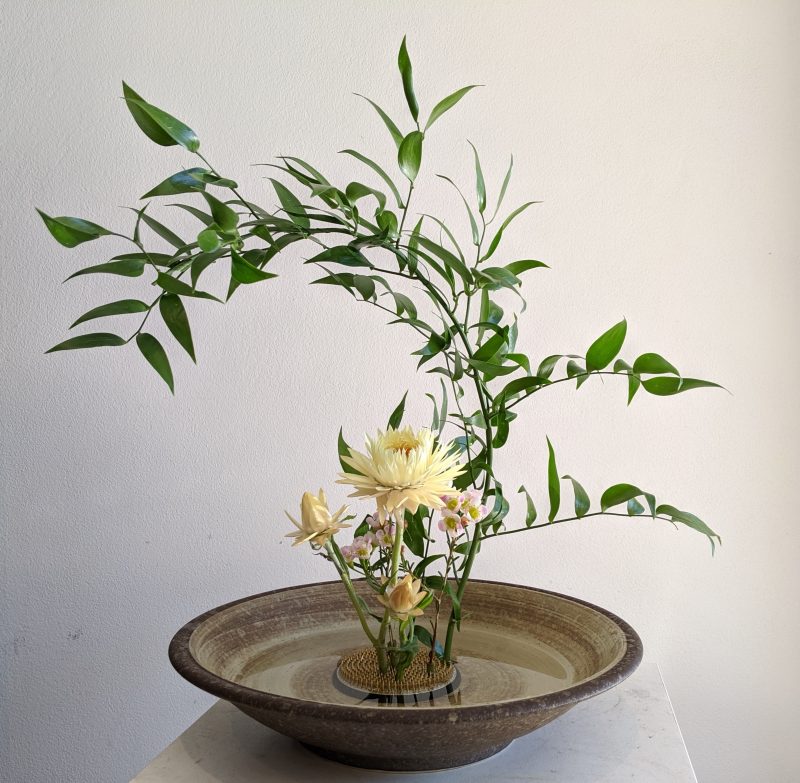By Paige Freeborn
“Our wounds are often the openings into the best and most beautiful part of us.”
~ David Richo
In Japan, there is an ancient artform known as kintsugi, which involves mending broken pottery using a lacquer infused with precious metals. The intention is to view the breakage and repair of the object as an important part of its history. The object is considered more valuable once it has been pieced back together, and it is a symbol of both the fragility and the strength of life. This supports the Japanese aesthetic of wabi-sabi, which honours the imperfection and impermanence that flow through all of life. This is an ancient philosophy that speaks to the inevitable challenges we face as we move through life, and how this shapes us as we age. The belief is that when we allow our scars and imperfections to shine through, without the glossy veneer of unattainable perfection, we are in touch with our most present and natural way of being. This is a practice of developing an appreciation for both the joys and sorrows of life, recognizing that the totality of our experience involves fully embracing transience and suffering. People and objects are seen as more beautiful because of the wear and tear they have endured, and their imperfections are a mark of their strength and resilience.
Much like the broken pottery, recovering from an eating disorder is a remarkable journey of piecing our lives back together. It is a journey of challenge, discovery, and growth, as we gain a new perspective on life. When I was ill, I didn’t realize how I would come to appreciate the lessons my eating disorder would teach me. My illness and recovery are now beautiful reminders of the path I have traveled, and the lessons I have learned are gifts that flow through my life.
A GRATEFUL PERSPECTIVE
 When we are ill, our perspective narrows, and the focal point of our life becomes the eating disorder. Often, we feel desperate, alone, and confused, lacking in the strength and resilience we need to fully engage with life. Finding clarity in our thoughts and skillfully prioritizing our time can be a challenge, and supporting ourselves in even the most basic ways can feel like an impossible and overwhelming task. Overcoming an eating disorder involves cultivating a new perspective on life. As we restore balance, we develop the capacity to feel grateful for the gifts in our lives, and we open up our senses to the beauty that surrounds us. Once recovered, our experiences are that much richer because we are able to embrace life with a new outlook and a new set of skills. As we recover, we learn to give up the delusion of perfection and embrace the sensitivity, fragility, and uncertainty of life. As we come to accept our imperfections and mistakes with more lightness and humour, our perspective broadens, and we are left with a worldview that is steeped in gratitude. Over two decades into my recovery, I still notice how grateful I am to be free of my eating disorder, and gratitude is a foundational part of my worldview.
When we are ill, our perspective narrows, and the focal point of our life becomes the eating disorder. Often, we feel desperate, alone, and confused, lacking in the strength and resilience we need to fully engage with life. Finding clarity in our thoughts and skillfully prioritizing our time can be a challenge, and supporting ourselves in even the most basic ways can feel like an impossible and overwhelming task. Overcoming an eating disorder involves cultivating a new perspective on life. As we restore balance, we develop the capacity to feel grateful for the gifts in our lives, and we open up our senses to the beauty that surrounds us. Once recovered, our experiences are that much richer because we are able to embrace life with a new outlook and a new set of skills. As we recover, we learn to give up the delusion of perfection and embrace the sensitivity, fragility, and uncertainty of life. As we come to accept our imperfections and mistakes with more lightness and humour, our perspective broadens, and we are left with a worldview that is steeped in gratitude. Over two decades into my recovery, I still notice how grateful I am to be free of my eating disorder, and gratitude is a foundational part of my worldview.

THE CREATION OF SPACE
Eating disorders can feel all consuming. When we are in the deepest grips of our illness, we feel powerless to stop it, and the resulting anxiety can rob us of much of our energy. Sometimes, we are barely capable of doing anything more than living in survival mode, which is marked by a deep exhaustion. To recover from an eating disorder is to breathe life into life. In this space, we discover a new-found sense of joy and freedom, which allows us to connect more with the world around us. When the turbulence of the eating disorder subsides, we are able to view the world with a sense of awe and wonder. This is a spacious focus that is oriented toward hope, connection, and belonging.
A SENSE OF BELONGING
Eating disorders can leave us feeling numb, as though we are moving through the world without fully being a part of it. This isolation and loneliness speak to a sense of not belonging, and at the deepest level, we feel like we aren’t deserving of our place in the world. The process of recovery is the process of realizing that we do belong, and that we are inherently worthy, without having to achieve anything or do anything. Despite our imperfections, we are worthy, because of the fact that we are human. Our worth does not have to be earned, nor do we need to feel shame because we are not living up to someone else’s standards. As we come into our own sense of belonging, we start to let down the walls of separation, and through this process, we discover we are not alone. Showing our vulnerability to others opens up a space in which we come to realize that we are all trying to find our sense of belonging and our place in the world. The universality of this realization, and the connection we experience when we share authentically with others, reinforces our sense of belonging.
AUTHENTICITY
Eating disorders involve hiding the parts of ourselves that we don’t see as worthy, and as we hold back parts of who we are and how we feel, this gives the eating disorder more power. When we are in our illness, we fear rejection from others, and the resulting anxiety propels us further into our disease. Recovery calls for us to share our authentic self, and as we speak our truth and share our story, we start to trust the potency of our own voice. Our tolerance for inauthenticity decreases, and we are no longer willing to create space in our lives for those who judge us or attempt to diminish our self-worth. This boundary setting is a natural and important part of our journey, and allows us to see through the harmful body image and dieting messages that are falsely advertised as ‘healthy living’ in our culture.
PATIENCE
Over time, we learn the truth of our eating disorder: despite its many pulls and promises, it will never release us from our suffering. As we come into this realization, we develop the capacity to face our illness with a greater sense of calm and ease. The road to recovery is non-linear, and is filled with unpredictable twists and turns. There are countless moments of anxiety and shame, and in these moments, it can seem as though we are regressing. In time, we come to realize that our lowest moments are the great wellspring of our healing, as they provide us with the opportunity to become more compassionate with ourselves. Time and again, we learn to become patient with ourselves by sitting in the fire of our illness. Over time, we learn to become less reactive as we ride the waves of our illness, and in the end, we learn that we are more loving and wise than we thought possible. This realization is the miraculous path to healing.
GENEROSITY

The process of recovery involves learning to receive generosity. Throughout our recovery, we seek supportive people who accept us as we are, and help us create a safe space for healing. Along the way, we develop our own capacity to be a safe presence for others by receiving suffering in a non-judgemental way, and creating a generous space for others to heal. As we practice being kind, we witness ourselves being kind, and healing becomes a two-way mirror of vulnerability and compassion. As we allow authentic, caring, and non-judgemental people into our lives, we learn what support looks like, and that it has the power to help restore a sense of safety and belonging. Offering a safe, non-judgemental space for an eating disorder sufferer is a life-giving act. In time, we come to trust in our ability to receive generosity, and to give generously to others as well.
I am deeply grateful for the gifts of my recovery. My scars are sacred wounds that have transformed my life, and helped me create a new story. I notice each new crack as a beautiful reminder of the path I have traveled, and my capacity to understand and honour the fragility of life. Each difficulty is an offering, and an opportunity to learn to become a more wise and loving person. As the great Canadian poet and musician Leonard Cohen once wrote: Forget your perfect offering. There is a crack in everything. That's how the light gets in.
 Paige Freeborn is an artist, educator, meditation and yoga teacher, and cultural leader who recovered from an eating disorder over twenty years ago. She works with teenagers and adults to help them develop more self-awareness and self-compassion, and to support them as they become a support for others. Over the years, Paige has oriented much of her life around service. She is grateful to be involved with the Looking Glass Foundation’s Hand In Hand Program, and to have a chance to work with the extraordinary people who are a part of this organization.
Paige Freeborn is an artist, educator, meditation and yoga teacher, and cultural leader who recovered from an eating disorder over twenty years ago. She works with teenagers and adults to help them develop more self-awareness and self-compassion, and to support them as they become a support for others. Over the years, Paige has oriented much of her life around service. She is grateful to be involved with the Looking Glass Foundation’s Hand In Hand Program, and to have a chance to work with the extraordinary people who are a part of this organization.